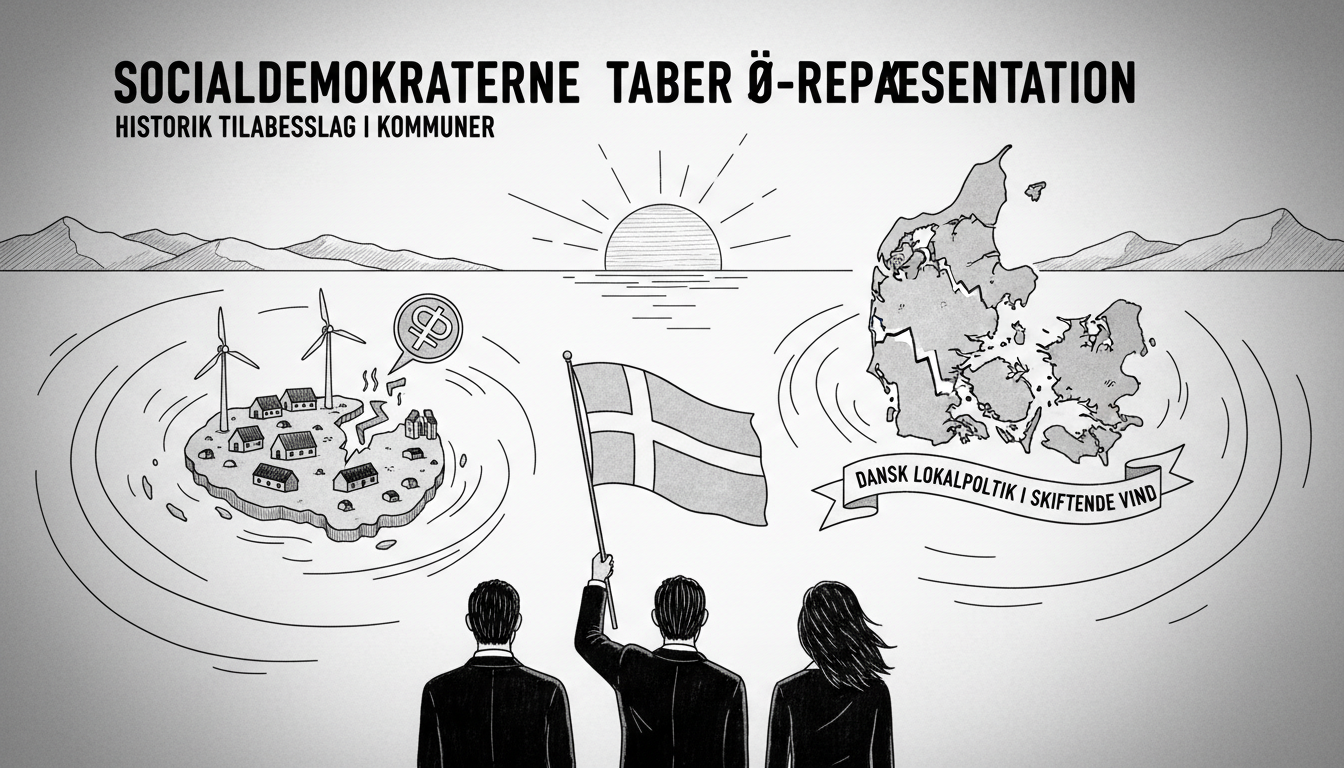Denmark's Social Democratic Party has lost its political representation in two island municipalities. The party failed to secure council seats on both Fanø and Læsø islands following recent local elections. This marks a significant shift in Danish local politics.
The Social Democrats previously held single mandates in both island communities before Tuesday's vote. The party received only 4.5 percent of votes on Fanø and 8 percent on Læsø. These results fell below the threshold needed to maintain council representation.
This development represents a historic moment in Danish municipal politics. It is the first time since the 2007 structural reform created the current 98 municipalities that the Social Democrats lack representation in every single municipality. The structural reform consolidated Denmark's local government system.
The party's current situation contrasts sharply with its performance in the 2021 municipal elections. During that election cycle, the Social Democrats became Denmark's largest party nationally with over 28 percent of votes. They secured 44 mayor positions across the country, the highest number of any party.
Early results suggest broader electoral challenges for the Social Democrats beyond the island communities. The party has experienced substantial declines in several mainland municipalities. In Lolland, Holstebro, and Kerteminde, support dropped by more than 15 percentage points.
The political consequences are already materializing in some locations. In Kerteminde, sitting mayor Kasper Ejsing Olsen from the Social Democrats has conceded defeat. A conservative candidate will become the new mayor following the election results.
Other municipalities show similar patterns of declining support. In Frederikshavn Municipality, the Social Democrats lost more than half their previous support. They no longer hold an absolute majority and have lost their status as the largest party in the municipality.
Brøndby Municipality presents another example of the party's challenges. The Social Democrats have lost their absolute majority in this traditionally stronghold area. The pattern suggests broader electoral difficulties beyond isolated cases.
Local elections in Denmark occur every four years and determine municipal council composition. These councils handle important local services including schools, elderly care, and local infrastructure. The results directly impact how communities are governed and services are delivered.
The Social Democrats' current situation raises questions about their local political strategy. The party must now assess how to rebuild support in areas where they've lost representation. This may require new approaches to local campaigning and community engagement.
International observers of Nordic politics should note these developments. Denmark's local government system gives municipalities substantial autonomy in service delivery. Changes in political representation can directly affect how policies are implemented at local levels.

